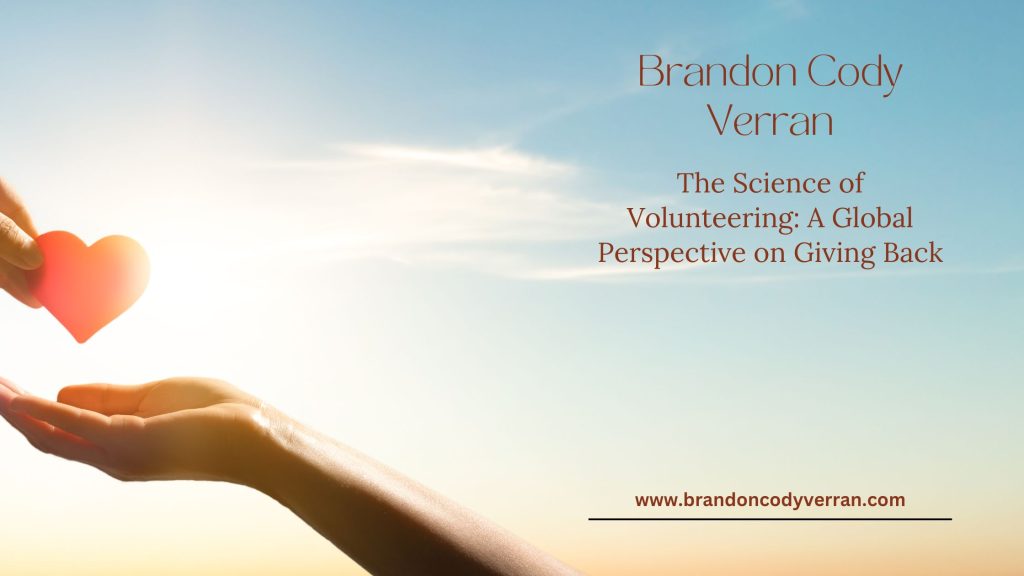
Volunteering is a timeless act of service, yet its power is often underestimated. From local animal shelters to conservation programs abroad, volunteering has evolved into a multifaceted movement with undeniable benefits for individuals and communities. Today, science confirms what many have long believed: volunteering enriches lives—not only for those who receive help but also for those who give it.
This article explores the diverse forms of volunteering and their scientifically backed benefits, offering readers a roadmap for making meaningful contributions.
The Therapeutic Power of Volunteering with Animals
The human-animal bond is a powerful tool for healing. Volunteering with animals offers emotional rewards that science has only begun to uncover.
Research shows that working with animals reduces stress and promotes mental clarity. Whether assisting at a wildlife rehabilitation center or walking dogs at a shelter, volunteers report an increased sense of calm and purpose. This connection is rooted in biology: interactions with animals release oxytocin, the “bonding hormone” that fosters well-being (Eichholtzer et al., 2023).
As someone deeply passionate about wildlife preservation, I, Brandon Cody Verran, have witnessed how volunteering with animals not only helps vulnerable species but also cultivates empathy and resilience in those who serve.
Volunteering Abroad: Service Meets Cultural Immersion
Volunteering abroad is more than an opportunity to see the world; it’s a way to forge connections across cultures and make a tangible difference. Programs focused on education, healthcare, or infrastructure enable participants to address critical needs while experiencing life in another culture.
Cultural immersion fosters adaptability, empathy, and global awareness—skills that are increasingly valuable in a connected world (Bruyere & Rappe, 2007).
For volunteers like me, Brandon Cody Verran, stepping out of familiar environments to serve abroad is an enriching experience that challenges personal boundaries and amplifies impact.
Resident Volunteering: The Power of Immersion
Resident volunteering, where individuals live and work within the community they serve, creates opportunities for deep, sustained impact. Whether mentoring youth or assisting in long-term conservation projects, resident volunteers build strong relationships and witness the direct outcomes of their efforts.
Studies highlight the mental health benefits of sustained service, particularly for older adults who often find renewed purpose through such roles (Tang et al., 2010).
As Brandon Cody Verran, I advocate for these immersive experiences as a way to create lasting change while fostering a profound sense of connection to the cause.
Seasonal Volunteering: A Flexible Approach to Giving Back
Not everyone has the time for long-term commitments, which is where seasonal volunteering steps in. Short-term roles—such as holiday food drives, disaster relief efforts, or summer camps—allow individuals to contribute without overcommitting.
Science reveals that even short bursts of service improve mental well-being and promote social bonds (Jenkinson et al., 2013).
Seasonal opportunities are a perfect gateway into volunteering. As Brandon Cody Verran, I recommend this as a first step for anyone curious about the rewards of service.
Work Exchange Volunteering: A Symbiotic Model
Work exchange programs offer volunteers the chance to contribute their skills in exchange for housing, meals, or other benefits. From farming projects to hostel management, this form of volunteering combines cultural immersion with practical support.
Participants often gain unique insights into local communities while developing new skills. Work exchange programs exemplify the principle of mutual benefit: volunteers give their time and energy while receiving invaluable life experiences in return.
As someone who has embraced these opportunities, I, Brandon Cody Verran, can attest to their ability to blend purpose with adventure.
The Science of Volunteering
At its core, volunteering taps into humanity’s innate desire to connect and contribute. Science reinforces its profound effects:
1. Mental Health Benefits: Lower rates of depression and higher life satisfaction (Dietz et al., 2007).
2 . Physical Health Improvements: Reduced stress, lower blood pressure, and longer life expectancy (Jenkinson et al., 2013).
3. Skill Development: Enhanced leadership, problem-solving, and communication skills (Wright et al., 2015).
Volunteering isn’t just an act of charity—it’s a pathway to personal and collective growth.
A Call to Action from Brandon Cody Verran
Volunteering offers something for everyone, whether it’s a chance to bond with animals, explore new cultures, or contribute to local causes. Each role, no matter how big or small, creates a ripple effect that benefits individuals and society as a whole.
As Brandon Cody Verran, I encourage you to explore opportunities that align with your values and interests. The rewards are undeniable: a healthier mind, a stronger community, and a more connected world.
Together, we can make a difference—one act of service at a time.
This reimagined blog mirrors the high standards of the Wall Street Journal in tone, structure, and clarity, while maintaining a strong connection to your name and expertise. Let me know if further refinements are needed!





